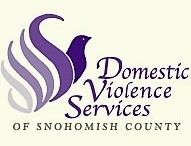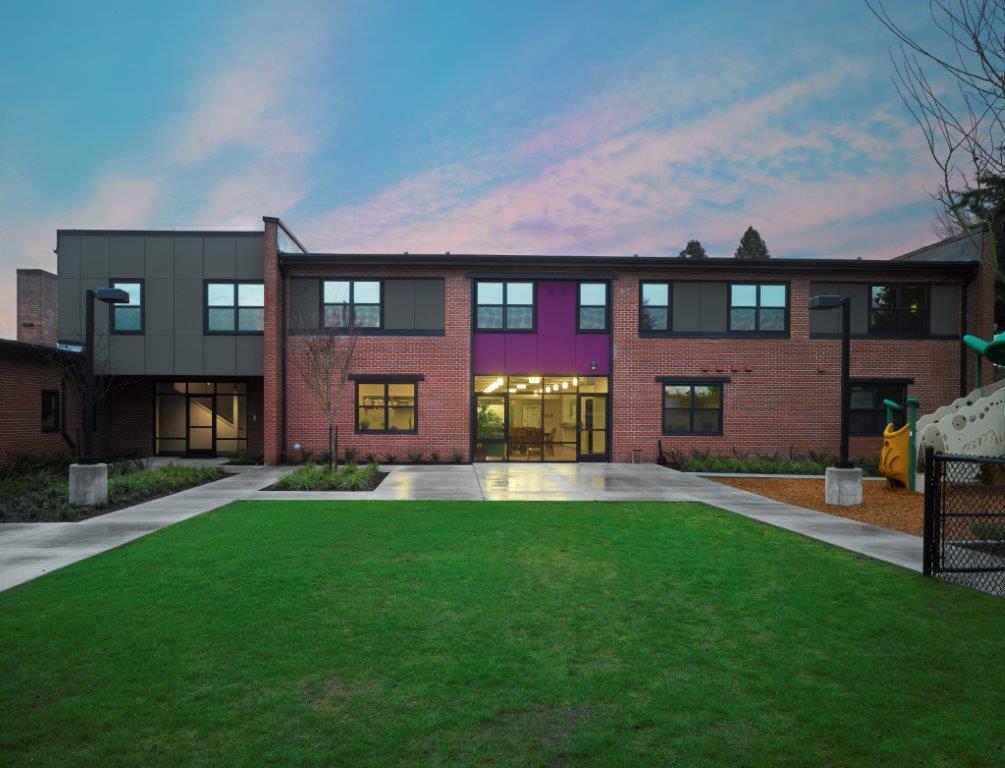
By Douglas Esser
University of Washington Bothell business students helped Domestic Violence Services of Snohomish County win a three-year, $288,000 grant the agency needed to open another office to support victims of domestic abuse.
Pat Hughes, the grants and contracts director for the private nonprofit, said it was the first time he had worked with a UW Bothell business class. “This group crushed it,” he said.
“Being able to leverage your research into my proposal was crucial to this being funded,” Hughes told them. “Your efforts will make a real-world difference.”
The students in the summer Business Project Management course taught by Deanna Kennedy were tasked with documenting service needs in the south county. The biggest finding of their report came from a survey of courts that showed judges were seeing 150 to 200 cases a month, Hughes said.
“It’s outrageous how prevalent domestic violence is,” said Hughes, adding that for every reported case there are probably dozens unreported.
Having the concrete data was what Hughes needed to prepare a compelling grant application. “It was the catalyst to transition this from a concept to a competitive proposal,” he said.
Domestic Violence Services of Snohomish County connected with Kennedy through the UW Bothell Office of Community-Based Learning and Research.
“This is exactly what we hope for — that the results that students produce can positively impact our partners’ organizations,” said Kennedy, associate professor in the School of Business and current chair of UW Bothell’s Community Engagement Council. “In this case, we were lucky to see a fast turnaround in having the students’ work contribute to the grant application and now seeing that grant be awarded.”
Students benefit from working on these kinds of impactful projects, Kennedy said. “It is wonderful that we have partners who are open to working with us and providing us with real problems that are meaningful to their organizations.”
The four-student team — Evangeline Abrigo, Clayton Hess, Jordan Lehman and Max Peaslee — researched demographics, analyzed data and surveyed others who work with domestic-violence survivors. They held weekly meetings, prepared status reports and gave presentations.
“We were able to deliver this outreach plan on time and above expectations,” said Abrigo, a senior in Business Administration. “Rarely is the immediate impact in a classroom as powerful as this, and we are so grateful for the contribution we made and for DVS SnoCo for giving us this opportunity.”
The project inspired Abrigo to join the UW Bothell Student Philanthropy Education Program, which helps build a culture of philanthropy.
“This experience showed me that one’s reach can extend as far as one is willing to go,” Abrigo said. “As a student, sometimes it is hard to see the fruits of labor outside of receiving a grade, but being a member of this team, for this cause, reminded me that isn’t always the case.”
The grant comes from the Verdant Health Commission, which is part of a county hospital district. Along with other funding, it allows Domestic Violence Services of Snohomish County to open an office in the south county area, which is some distance from the agency’s shelter in Everett, left. The office will connect people and their children to services they need when their home is no longer livable because of violence. Those can include legal advocacy, shelter, longer-term housing, transportation and health care, said Hughes, the grants and contracts director.

Legal advocacy does not mean a lawyer, he said, but rather is someone who can help people through the process of seeking a protection order, such as making sure children and pets are included, and standing together in court.
The office also will be a fixed location for support groups to meet, and the staff can reach out to local health-care providers so they’ll know where to refer patients. Hughes hopes to open the office early in 2019, possibly in the Lynnwood area.
In fall quarter, Hughes worked with four more UW Bothell business students in a class taught by Michael Ervick. They looked at sustainability, specifically how agency clients can find employment and become self-supporting.



